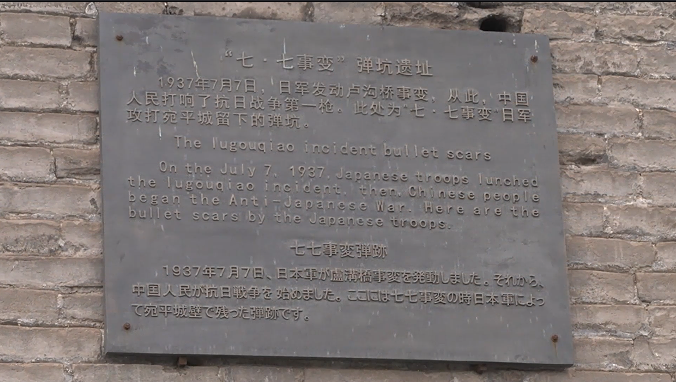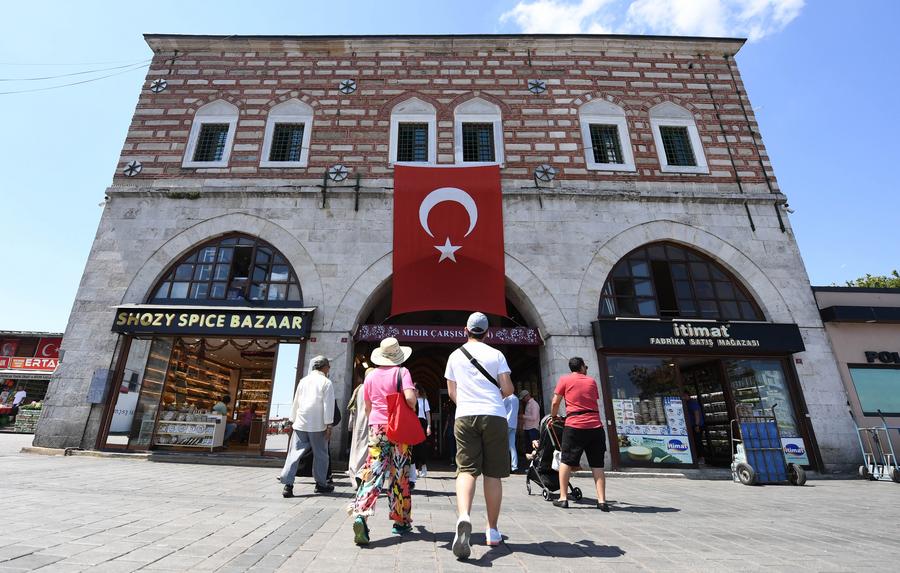
by Zeynep Cermen
ISTANBUL, July 7 (Xinhua) -- Istanbul's famous Spice Bazaar, which used to bustle with local shopping before Eid al-Adha, has fewer visitors this year due to the declining purchasing power of local residents.
Selim Durmus, a breakfast food shop clerk, said the number of Istanbulites who do their shopping for the upcoming Eid al-Adha in the bazaar dropped by more than 50 percent compared to the Eid al-Fitr in May.
"There are currently more tourists than Turkish citizens. Only 20 percent of our customers are Turks and 80 percent are tourists," Durmus told Xinhua.
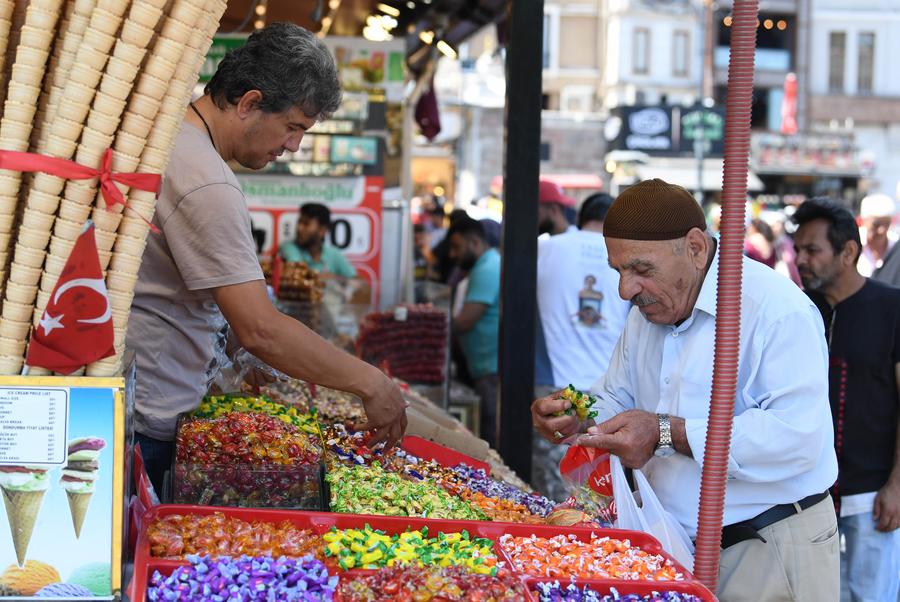
Turkish people attach great importance to their traditions and make many visits to family and friends. A lot of coffee, tea, cookies, nuts, and Turkish delight are consumed during holidays, and Spice Bazaar is one of the best places in town to purchase these items at affordable prices.
However, because of the high rate of inflation, Turks must reduce their budget for festival products this year, and shopkeepers have already felt the sting from a drop in sales.
"Our sales are not as good as it was. Turkish citizens used to do their purchases in kilos. Now everyone is counting the money in their pocket," Huseyin Yavuzer, an owner of dried fruit and nuts store, told Xinhua.
There was a small line of a few people in front of Mehmet Efendi, a well-known coffee producer in Turkey, where customers once had to wait for hours to get freshly ground coffee.
When asked about her plans for Eid-al-Adha shopping, a woman in her 40s who was waiting in front of the coffee shop responded "we buy these out of necessity. We save the day. Our purchasing power is long gone."
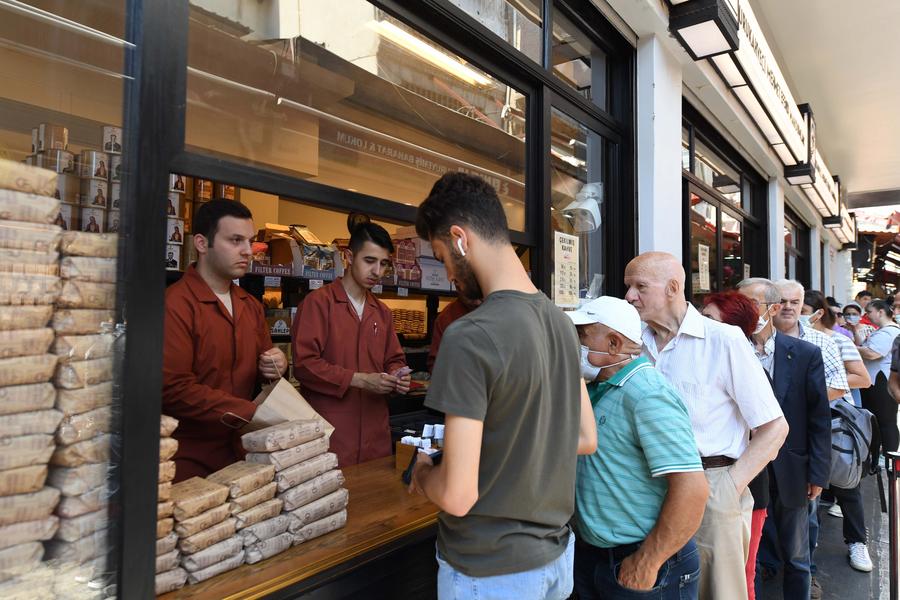
Since 2021, the Turkish currency lira has lost almost 60 percent of value against the greenback. One U.S. dollar stood at 17.30 liras at 12:00 p.m. local time (0900 GMT) on Thursday.
The Turkish economy, mostly dependent on imports, was also affected by a series of disruptions, including the conflict between Russia and Ukraine, which was blamed for pushing food and energy prices to higher levels.
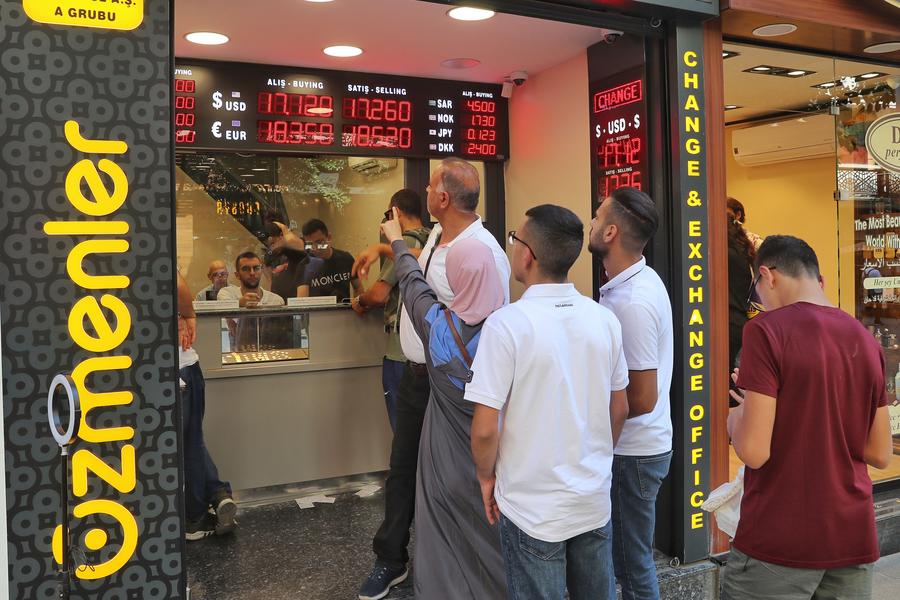
In response to soaring inflation and volatile currency rates, Turkish President Recep Tayyip Erdogan increased the minimum wage of millions of workers to 5,500 liras in July. However, against the persisting high inflation, which surged to 78.62 percent in June, the highest in 24 years, the amelioration remained insufficient.
Despite rising inflation, according to Durmus, Turks find it difficult to give up their customs, habits, and culinary preferences; nonetheless, they now have to take their spending into account before making a decision.
"Now they buy some Turkish delight for 20 liras, and that is just for the sake of the tradition, and if they left 30 liras left in the pocket, they want to purchase some nuts and then leave," said Huseyin Yavuzer. ■







